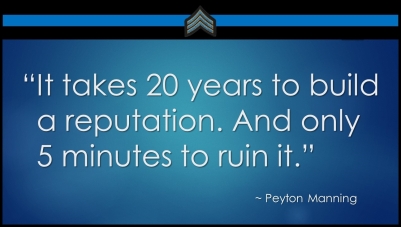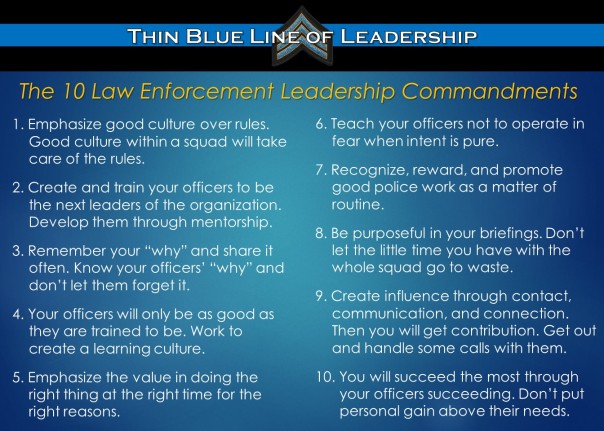
As a police sergeant, I have 2 primary goals regarding the officers on my squad: 1. Keep them safe. 2. Assist them in being successful at reaching their goals. To assist them in being successful with their goals, I find it is necessary to help give them perspective on the “big picture.” In law enforcement, it is easy to get caught up in short-sighted issues that demoralize a squad like staffing, compensation, negative public perceptions, etc. With that being said, I wrote this and read it in one of my recent briefings.
Change and your reputation go hand in hand in any organization, but in a mid-sized police department it is even truer – there is nowhere to hide within a 400 person department. We all know the phenomenal street cop whose career was or is being derailed by their poor attitude and/or reputation. More times than not, their poor attitude and/or reputation is related to their inability to deal with change effectively.
Change is inevitable. The only thing that stays constant is that circumstances and situations are always changing. How you deal with change comes down to your own personal responsibility and accountability – What do you expect of yourself? This defines not only your ability to deal with change, but also develops your reputation within the organization. Are you a whiny victim of change or are you someone who can deal and work within the system that is present?
The sooner it is accepted that the system is what it is and will always be slow to respond, the easier it becomes to deal with organizational lapses. Organizations, like people, are inherently flawed – no organization is perfect because they are run by human beings who are made up of attitudes, egos, and emotions. To move beyond the lapses, though, you have to take the long view and not be focused on just the short-term. So, the question becomes, how do you react to change to get the best outcome and solidify a reputation as a positive, forward thinker?
First, when change is approaching, ask this question of yourself, “What can I do?” This is the most direct and proactive response you can have. Sometimes you’ll have the ability to affect change before it is upon you and sometimes you won’t. The key is to remember that working within yourself is the only thing you actually have true control over – your actions, your attitude, and your effort.. By taking initiative and working from the front, you can often help direct change in a more palatable direction.
But, what if there is nothing you can do to directly affect the change that is coming? I answer that question with a quote from Maya Angelou, “If you don’t like something, change it. If you can’t change it, change your attitude.”
If you can’t affect the situation directly, then whining, complaining, or having beat office bitch sessions will do nothing but hurt YOUR reputation. The perceived “problem” will rarely be blamed because it is so ambiguous and comes from “they” levels. You know who “they” are, right? I implore you not to see change as something that is out to get you – it is vital to your career success to be a person who can identify the positives and opportunities that come with change.
There are 3 things you are always in control of when it comes to change – your actions, your attitude, and your effort. The common denominator to all 3 of those is YOU – you are in control and no one can take that away unless you let them. It is all about being proactive, not reactive.
Here are 5 steps to help deal with change in a positive, forward-thinking manner. These steps are adapted from the book Who Moved My Cheese? by Spencer Johnson.
Change Awareness
- Accept that change happens.
- Anticipate change.
- Affect change, if possible.
- Adapt to change quickly by adjusting your perspective.
- Enjoy change by being in personal control of your response to it.
Ultimately to succeed, not just within an organization, but in life, it is about survival of the fittest – your ability to adapt and overcome to change. Just like responding to a call, the situation is always going to be fluid. How you respond is your choice and builds your reputation either for better or for worse!
The mission at Thin Blue Line of Leadership is to share positive leadership tactics with the field of law enforcement. Positive leadership and creating a positive squad culture are on-going commitments that must be nurtured and developed over time by anyone in a law enforcement leadership position. By discussing topics like this, law enforcement leaders are tending to the welfare of the “whole” officer, not just the one in uniform.
Share your thoughts or comments with us below or on our Facebook page. Continue saving the world one call at a time and as always, LEAD ON!



